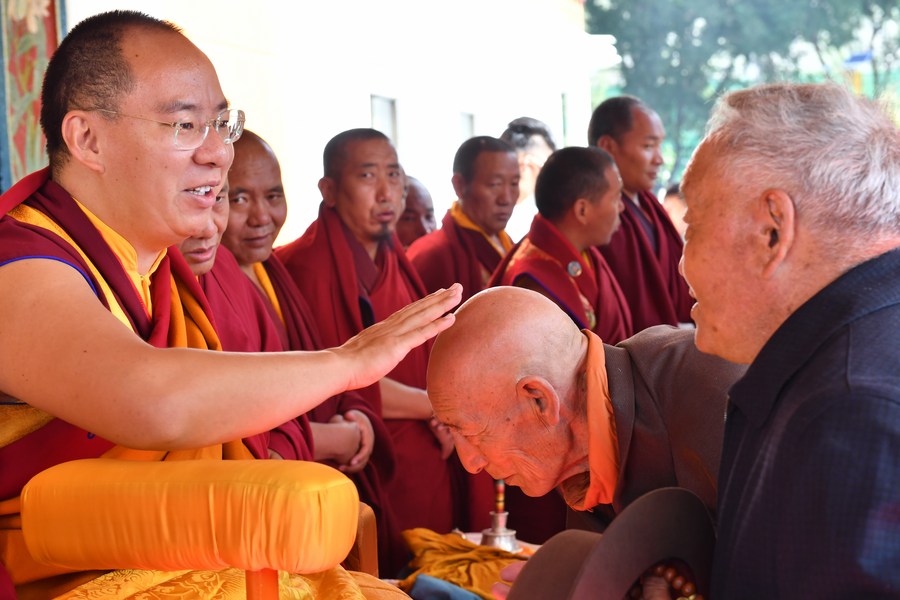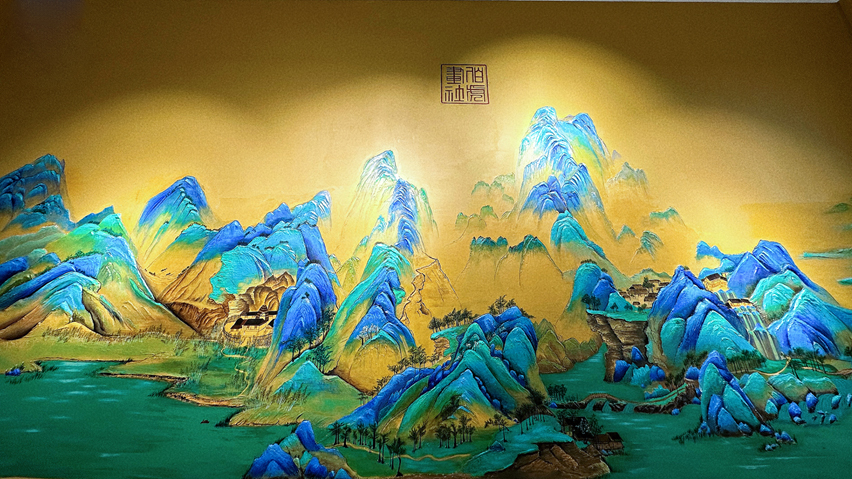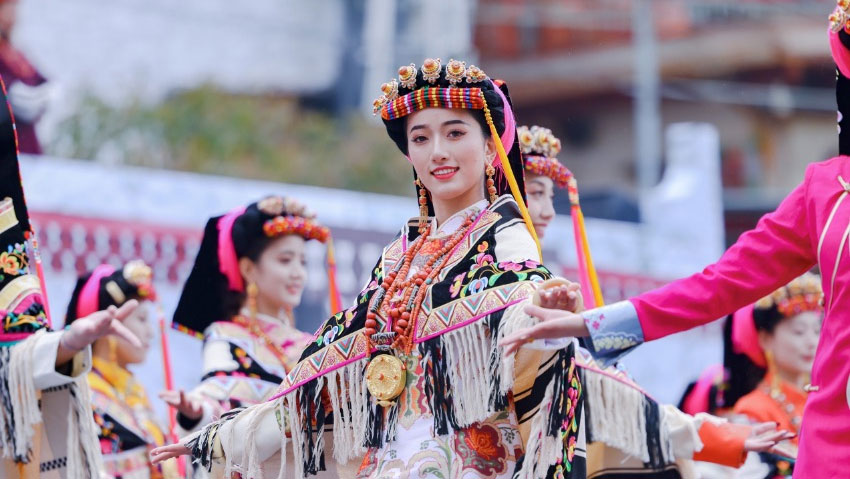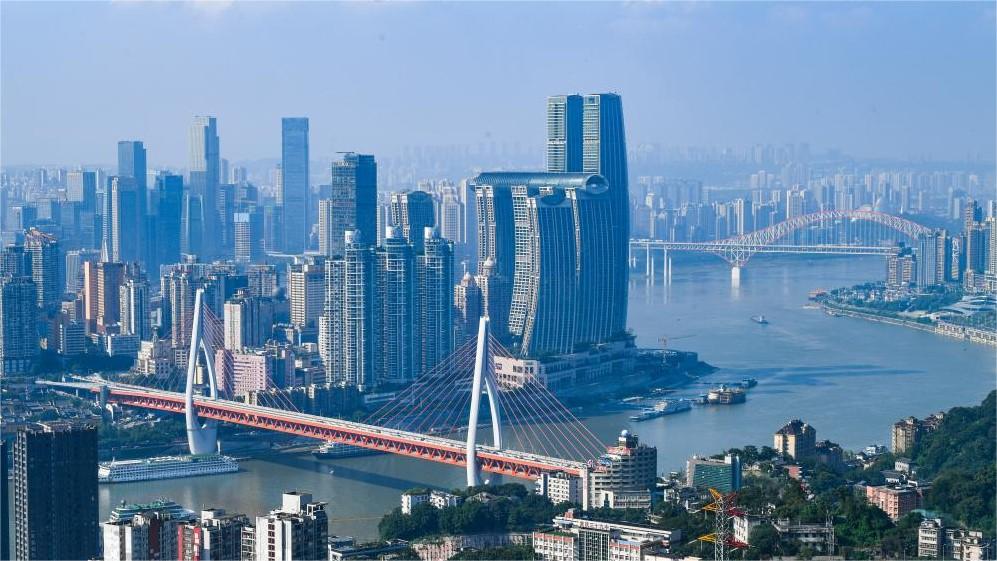Pakistani diplomat: Visiting Xizang is a dream come true

Tourists visit Mount Qomolangma National Park in southwest China's Tibet Autonomous Region, Oct. 27, 2023. (Xinhua/Zhang Rufeng)
"Seeing is believing," Pakistani diplomat Khalil Hashmi said, underlining his visit to China's Xizang and his observations of the region's development and prosperity.
GENEVA, Nov. 1 (Xinhua) -- Visiting China's Xizang Autonomous Region was a "dream come true," the permanent representative of Pakistan to the United Nations in Geneva has said, calling the trip "a pleasant surprise, contrary to what we hear from some Western delegates."
Ambassador Khalil Hashmi has recently finished a trip to Xizang. He told Xinhua that what he saw there was the full realization of the economic, social and cultural rights of local people.
"Seeing is believing," he said, recalling his visit to schools, health facilities, government offices, local towns and cities, and his experience of traveling by bullet trains. "We saw massive development in the form of highways, electricity, telecommunications, and an excellent airport in Lhasa."

A group of Tibetan antelopes pass through the Qinghai-Tibet Highway and head towards the Sanjiangyuan area in northwest China's Qinghai Province, July 28, 2023. (Xinhua/Zhang Hongxiang)
Hashmi told Xinhua that every monastery in Lhasa could be a "living example of religious freedom." There, he saw thousands of devotees praying, performing their religious rituals in traditional dress.
As Pakistan's newly-appointed ambassador to China, Hashmi also saw Xizang children reading, writing, singing, practicing calligraphy and speaking their ethnic language during the trip. "What we saw in the museum was efforts made to preserve their very ancient Tibetan culture and heritage."
"We saw people in towns and schools, we interacted with them, we were free to take photographs and videos. We saw a general level of prosperity and we saw people there very content, very satisfied with their lives," he said.
"The fact is that Xizang alone is a 1.2 million square kilometer space, it takes a huge political, economic and financial commitment to connect this vast region for its inhabitants, to put in place the infrastructure, including roads, bridges, trains, electricity, running water, schools, hospitals and so on," he said.

Panchen Erdeni Chos-kyi rGyal-po gives head-touching blessings to a believer in Lhasa, southwest China's Tibet Autonomous Region, July 17, 2023. (Photo by Chogo/Xinhua)
According to Hashmi, one of Xizang's biggest achievements is to enable local children from remote areas to study in boarding schools at primary, middle and secondary levels, so that they can realize their full potential.
"There is much for a number of developing and developed countries to draw inspiration from and to learn from what China has been able to achieve," he said.
Commenting on "misinformation" about boarding schools in Xizang, Hashmi said: "The reality is that a lot of people live far away, so the Chinese government has not just provided them with schools at every level, but also provided them with boarding facilities."

A college student tutors children in building models under a start-up project of Xizang Minzu University in southwest China's Tibet Autonomous Region, on Oct. 11, 2019. In 2019, Tibet created more than 60,000 jobs for university graduates by improving employment policies and services. (Xinhua/Jigme Dorje)
"This is part of schooling in a 1.2 million square kilometer area, and should be appreciated," he added.
He stressed that in the boarding schools, the students can go back to their homes, and their parents can also visit them.
"What the Chinese government has done is a great service to human rights and generally empowering the Tibetan people. Unfortunately, for some countries, human rights are being used as a foreign policy tool to stereotype, to cast a country in a certain light, and then use different tools to disseminate disinformation. It's instrumentalization of human rights for certain interests," he said.
Photos
Related Stories
Copyright © 2023 People's Daily Online. All Rights Reserved.









